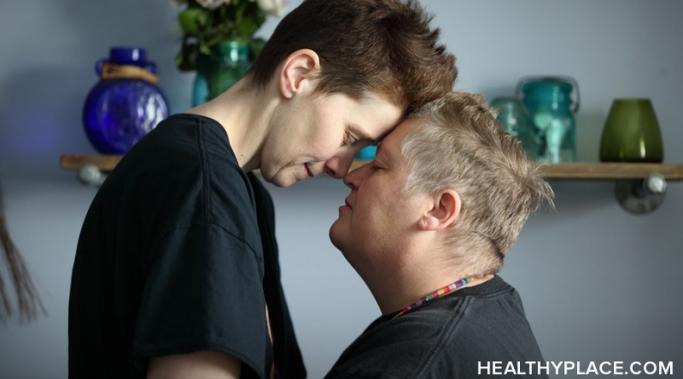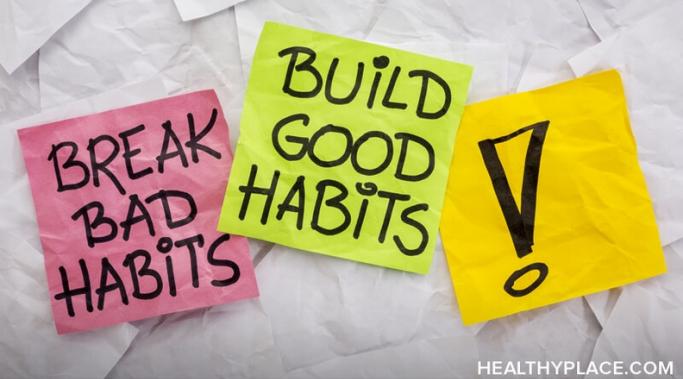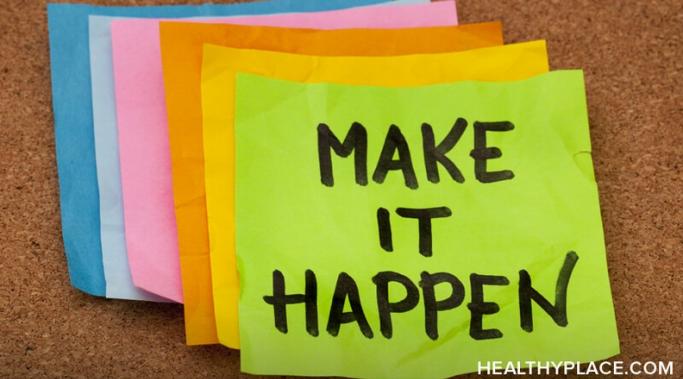Approaching others about their mental health can be an awkward situation, but sometimes it's necessary. A big regret I have about my brother's journey with chronic mental illness is that I didn't raise my concerns about his symptoms sooner. If you're unsure whether or not to have that difficult conversation with a friend or family member, here are some insights I've picked up over the last few years.
Parenting and Mental Illness
The partnership between families and mental health professionals is often a key component of adequately supporting a loved one with mental illness. I see this every day in my working life as an occupational therapist -- when there's no buy-in from the family, chances of an intervention being successful are dramatically reduced. When my brother developed chronic anxiety and depression seven years ago, I had to practice what I preach and actively foster a good relationship with his medical team. Here are some points about that experience that I wanted to share.
It can be difficult to watch a loved one's mental health deteriorate when they struggle with the prescribed medication they need. It is also confusing when a family member chooses not to take their prescribed medication even when they know it will help them. In this article, I wanted to reach out to my family to understand their point of view when they do this.
In January, wellness culture tends to be more prominent than ever -- it seems as if the whole world becomes intent on creating a healthier, more productive version of themselves. For those with mental illness, this narrative can be damaging. My brother, who has chronic anxiety and depression, has often spoken about how wellness culture can leave him feeling frustrated and inadequate.
It's always important to be mindful of mentally ill loved ones, but it's especially important around the holidays when routines change, and symptoms can intensify as a result. I've noticed in the past that my brother (who has chronic mental health issues) can particularly struggle at Christmas time. This year, I'm hosting a family Christmas day gathering for the first time -- here are some of the steps I'm taking to make my brother's mental health a priority during the celebrations.
I've spent some time this week, reflecting on various lessons I've learned from my brother since he became mentally unwell with anxiety and depression. So often in our relationship, I've taken on the role of "teacher" -- as is natural for a bossy older sibling. However, over the last seven years, I have gained a lot from observing how my brother lives with mental illness. I'd like to unpack that a little bit today.
Caregiver burnout is a very real phenomenon when supporting someone with mental illness. In my experience, caregiver stress and compassion fatigue arise as a result of putting your own needs to the bottom of your list on a consistent basis. I've experienced caregiver burnout on many occasions when supporting my brother with his mental illness -- and if I'm very honest, I'm experiencing it again right now.
Many people aren’t sure whether or not to talk to kids about mental illness. When I was younger my aunt had frequent hospitalizations due to mental health issues, but I was told she had a sore back. I guess my family thought this was an inappropriate topic to talk to a child about. In hindsight, I think it could have been a positive conversation if I had been told about my aunt’s mental illness – here’s why.
Why does my loved one have a mental illness? Is there something I could have done to stop this from happening? I tormented myself with questions like this when my brother first became unwell with anxiety and depression -- and guess what? They only made things harder.
Feeling overwhelmed by supporting someone with mental illness is nothing to be ashamed of, but sometimes we can struggle to admit our true feelings. Here's a little bit about how I felt when my brother was diagnosed with chronic anxiety and depression.









